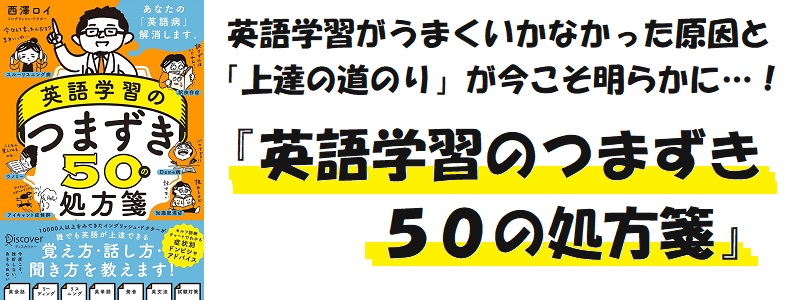ページコンテンツ
ザ・チョジェ・リンポチェ師のインタビュー映像
こんにちは、イングリッシュ・ドクターの西澤 ロイです。
先月8月のラジオ「西澤ロイの頑張らない英語」の
ゲストに、チベット仏教の高僧、
ザ・チョジェ・リンポチェ師
ZaChoeje Rinpoche
をお迎えして、インタビューをさせていただきました。
ラジオでの放送後、YouTubeで映像付きで
公開させていただいております。
このインタビューにつきまして、
英語の文字起こしと、日本語訳を
以下に掲載いたします。
ザ・チョジェ・リンポチェ師のインタビュー全文
リンポチェ師の自己紹介
――今回のゲスト様は、チベット仏教の高僧でいらっしゃいます。ダライ・ラマ14世の70歳生誕祭では、最高執行責任者を務められましたザ・チョジェ・リンポチェ師です。
Hello everybody. I am ZaChoeje Rinpoche. And you can call me Rinpoche. It’s a short name.
(みなさん、こんにちは。ザ・チョジェ・リンポチェです。短くして「リンポチェ」と呼んでいただいて構いません)
And I live in America, actually I am Tibetan.
(アメリカに住んでいますが、チベット人です)
And my parents are from Tibet. But I was born in a refugee camp. And these days I live in America.
(両親はチベット出身ですが、私が生まれたのは難民キャンプです。最近はアメリカに住んでいます)
And sometime, my American name, people call me Zach Rinpoche. So in Japan, it’s like Zakku Rinpoche.
(アメリカンネームとして「ザック・リンポチェ」と呼ばれます。日本だと「ザックー、ザックー」と呼ばれますね)
――Okay. Rinpoche, thank you so very much for coming on this program today.
(リンポチェ様、本日はこの番組にご出演くださり、本当にありがとうございます)
You’re very welcome. It’s my pleasure.
(こちらこそ、とても嬉しいです)
日本は何回目?
――I want to ask you a lot of questions. How many times have you been in Japan?
(したい質問がたくさんあります。日本は何回目くらいでいらっしゃいますか?)
Actually, I’ve been in Japan maybe many time.
(日本にはもう何回も来ています)
Since 1999, now it’s 2017.
(1999年からですから、今は2017年です)
――Yeah, 18 years ago.
(18年前ですね)
Sometime two times a year, sometime one time a year.
(年に2回来ることもあれば、年に1回の時もあります)
So basically I will say “many times” I visited Japan.
(ですので基本的に、日本には「たくさん」来ております)
日本食はお好きですか?
――Yeah that’s a lot. Do you like Japanese food, by the way?
(それは「たくさん」ですね。ところで、日本の食べ物はお好きですか?)
おいしいです。(笑)
――What do you like specifically?
(特に何がお好きですか?)
Japanese food I really love. One of my favorite thing is ramen.
(日本の食べ物は大好きなのですが、特に好きなものの1つがラーメンです)
――Ramen. Wow!
(ラーメンですか!)
And Gyoza. Ramen and Gyoza.
(そして餃子。ラーメンと餃子です)
――I love ramen too.
(僕もラーメン、大好きなんです)
日本には「敬意」を払う美しい文化がある
――What do you think about Japanese people?
(日本人に対して、どのようなことをお感じでしょうか?)
I think Japanese has a beautiful culture.
(日本には美しい文化があると思っています)
And I think the most important thing that I notice is that Japanese culture very much based on kind of respect.
(私が注目する一番重要なポイントは、日本文化が「敬意」の上に成り立っていることです)
Yeah, if you go into the ancient culture, in samurai culture, they teach you how to respect even your enemy, which is a big thing.
(日本の昔の文化、例えばサムライの文化を見てみると、敵にさえも敬意を払うことを教えています。それはとても大きなことです)
And recently when I was visiting here, and there was a day I think it was July 17. It’s called “Umi” Day. Right? The Marine Day.
(少し前に日本に来た時にも、7月の17日頃だったと思うのですが、「海の日」と呼ばれていました)
And I was kind of asking what is that day about?
(私は、これは何の日ですか?と尋ねました)
And then it is actually like a special day, a holiday to pay respect to the ocean or to appreciate the ocean.
(これは特別な日であり、海に対して敬意を払ったり、感謝をしたりする祝日だと教わったのです)
This is kind of like something very beautiful. So I think in Japan you have a very ancient beautiful culture.
(これはとても美しいことだと思うのです。日本には、伝統のある、美しい文化があるのです)
So people are really… just kind of like the politeness and how… respect people.
(人々も丁寧さを大事にしていて、他人に敬意を払っています)
Like when you meet someone, just kind of bowing to each other and just how they introduce each other. That’s a very unique culture.
(人と出会った時にも、お互いに頭を下げたりします。お互いに自己紹介をする方法も、独特なところがあります)
And somehow there’s a very beautiful culture in Japan, so you know, people who are actually taking that culture. I think that’s wonderful.
(日本には美しい文化があり、人々はその文化を取り入れています。それは美しいことだと思います)
――Last night I went to your seminar, and at first you talked about respect. That is a very good thing.
(昨夜、リンポチェ様の講演会に行きましたが、最初にされたお話が「敬意」でしたね。重要なことですよね)
Yes, that is I always say, you know, what I learned from Buddhist teaching.
(はい、いつもその話をするのですが、それが仏教の教えから私が学んだことなのです)
And Oshaka-sama actually teach many things, but if you put all things together, that just kind of summarize into one word, which is respect.
(お釈迦さまは実際、たくさんのことを教えていらっしゃいますが、全部を集めると、たった1つの言葉に集約されるのです。それが「敬意」です)
――Respect. And you find a lot of respect in the Japanese culture.
(敬意ですか。リンポチェ様は日本文化の中にそれをたくさん見いだしていらっしゃるのですね)
I think yeah. Culturally it is very much based on… the foundation of your culture, the Japanese culture is based on respect.
(はい、そう思います。日本文化の土台として、敬意が大元にあると思います)
Like respecting each other. So even you know, things like… if you can respect your enemy, then pretty much you can respect anybody.
(例えば、お互いに敬意を払うこと。もし自分の敵にさえ敬意を払うことができたら、誰に対してでもできるでしょう)
――Yeah, that’s right. Hmmm, I didn’t think like that. Wow.
(確かにそうですね。そんな風に考えたことはありませんでした)
英語学習者は未来のリーダー
――The main listeners of this program are English learners who live in Japan. And I think they are future leaders of Japan, or the world. And I want to hear some advice for them.
(この番組のメインリスナーは、日本に住む英語学習者の方々です。彼らは、将来の日本、ひいては世界を背負って立つリーダーだと僕は考えています。彼らに何かアドバイスをいただけたらと思うのですが…)
Yeah I think it is wonderful. I think now these days the world is becoming smaller in a way that we kind of like… people from different countries connected with each other.
(素晴らしいことですね。このところ、世界はどんどん狭くなり、国境を超えて人々がつながれるようになってきています)
And then English kind of become like one of the most internationally used language.
(そして英語が国際的に最も使われる言語の1つになっています)
So somehow it is kind of like good to know the English, so that you can actually connected with some other people, you know, culture people.
(ですから、英語をできるようになっておくのは良いことですし、そうすれば別の文化を持つ様々な人たちとつながることができます)
So that’s kind of like… we are kind of like coming into a new world.
(ある意味、新しい世界になってきていると言えるかもしれません)
It is wonderful to actually learn English. And actually, you know, I am trying to learn Japanese.
(英語を学ぶののも素晴らしいことですし・・・、実は私は日本語を身につけようと努力しているところです)
リンポチェ師はなんと日本語を勉強中
――What’s your favorite Japanese word?
(日本語で好きな言葉っておありですか?)
My favorite word? Utashi.
(好きな単語ですか?「うたし」です)
――Watashi (me)?
(「わたし」ですか?)
No, utashi.
(いいえ、「うたし」です)
――Utashi…
(「うたし」ですか……)
You know what “utashi” means?
(「うたし」の意味が分かりますか?)
――I’m sorry.
(ごめんなさい)
It is a combination of “ureshii (delightful)”, “tanoshii (fun), “shiawase (happy)”.
(組み合わせた言葉なんです。「嬉しい」と「楽しい」と「幸せ」を)
――Wow! Utashi… wow!
(なんと! それで「うたし」ですね!)
It’s not a Japanese word, but I made it up. One actually not I made it. One of my friend used it and I really liked it.
(日本語の単語にはありませんが作りました。私が作ったわけではなく、友人が使っていて、とても気に入ったのです)
――That’s good, that’s good yeah.
(いいですね。面白いですね)
シャイすぎる日本人へのメッセージ
――You know, many Japanese people are very shy. Maybe they’re too humble. And they shy away from using English. And speak up and say “I can do this!” Japanese people have to say that to the world I think.
(日本人はとてもシャイなところがあります。謙虚すぎると言いますか。そして、英語を使うことを避けてしまいます。立ち上がって大きな声で「私にはこれができる!」と、日本人は世界に対して言うべきだと僕は思っています)
Yeah I think sometime it is kind of like… Japanese people have a nature.
(確かに、日本人的な性質かもしれませんね)
Because you know like very detail oriented is the Japanese mind. Very detail oriented.
(細かいことを大事にしたり、そこにこだわる気持ちが、日本人の心の中にはあるでしょう)
So somehow it is kind of perfection is somehow kind of their mentality.
(一種の完璧主義のようなものが、精神性に含まれていると言いますか)
So if they can not to do something perfectly, then they kinda rather just shy away or don’t do it kind of thing.
(ですから、うまくできないことが分かっている時に、それを避けて最初からやらないことがありますよね)
So I think when you are learning something, I think you just have to say it.
(でも、何かを学んでいる最中なのであれば、口に出して言ってしまうべきだと思います)
You know, even though you make a mistake, I think everybody will understand because it is like somehow… for example English is not your first language.
(もし、間違えたとしても、きっとみんな理解してくれることでしょう。英語はあなたの母国語ではないのですから)
So when you make a mistake, people who speaks English well will actually understand that.
(間違えたところで、英語をうまく話せる人たちは理解してくれるでしょう)
Actually they will appreciate more if you actually speak to them.
(それどころか、彼らは頑張って話してくれたことを嬉しく思うはずです)
And if you don’t speak to them, I think then somehow people misinterpret that maybe he or she doesn’t like me or something like that.
(逆に、話そうとしなかったら、誤解をする人が出てきてしまうかもしれません。「もしかして私のことが嫌いなんだろうか」などと)
――So speak up.
(だから、口を開くことが大事なんですね)
Yeah, I think it is better to… even though it is a mistake but I think people would appreciate more if you just speak it up.
(間違いがあったとしても、もしあなたがちゃんと口を開けば、相手は喜んでくれるでしょうから、口を開いた方が良いのです)
間違いというものについて
――How do you define mistakes? I’m just curious.
(ふと興味が湧いたのですが、「間違い」についてどのようにお考えですか?)
And it’s kind of like sometime, for example Japanese is very similar to Tibetan.
(日本語は、チベット語と結構近いところがあります)
For example like “I am going” so it will be like a different way of saying “going I am”.
(例えば「私は行きます」というのを「行きます、私は」のように語順が違ったりします)
But it is just kind of like how you make the sentence, right?
(でもそれは、文の作り方というだけの話です)
So it is the kind of like… sometime you make a grammatically little mistake, I think it will be okay.
(時には文法的にちょっと間違えるかもしれませんが、それでも大丈夫なのです)
And sometime also people are afraid about the pronunciation because like pronunciation… okay maybe I’m making not correct pronunciation, maybe not a right way of saying or something.
(発音について怖がってしまう人もいます。「正しく発音ができていない」とか「正しい言い方ではないかもしれない」などと)
But I think it is just… you know, when we have a different tongue, it will be different pronunciation.
(でも、母国語が違えば、発音も違ってくるのです)
Like all over English speaking like British people has a different pronunciation, American have a different pronunciation.
(英語を話す人たちの中であっても、イギリス人は発音が違いますし、アメリカ人も違います)
And if the European people speak English, their pronunciation is also different.
(ヨーロッパの人たちが英語を話す時には、その発音もそれぞれ違います)
So I think it is just mistake in kind of like pronouncing.
(ですから、発音がうまくできなくても、ちょっとした間違いに過ぎないのです)
――Okay, okay.
(なるほど)
蚊を叩くべきかという問題
――You know, I have one personal question. And I have been to Bhutan twice. And 99 percent of Bhutanese people believe in Tibetan Buddhism. And they don’t kill. They don’t even kill mosquitoes. And I thought it was fascinating, and I wanna do the same.
(1つ、個人的な質問があるのですが、私は2回、ブータンに行ったことがあります。ブータン人の99%がチベット仏教の信者であり、彼らは殺生を好みません。蚊さえも殺さないのです。とても素敵な考え方だと思い、自分でも採用しようと思いました)
――But in Japan it’s hard not to kill mosquitoes. You know. Living with my family, they want them killed. But Bhutanese people, they wave away mosquitoes. That was, you know, fascinating.
(でも、日本にいると蚊を殺さないわけにはいかないのです。家族と住んでいると、退治を要求されるのです。でもブータン人は、手で追い払うんですよ。それって、何というか、素晴らしいと思ったんです)
It is kind of similar in Tibetan. Kind of like we have… Bhutanese and Tibetan has a similar kind of culture that you know when there’s an animal, they always kind of like… even if it is a mosquito, they just kind of wave it so that you know just they will go away.
(チベットはブータンに似ています。ブータンとチベットは似た文化を持っており、動物がいると・・・それが蚊だった場合には、ただ手を振って、追い払うのです)
Like if there is some insects on the road, they will just pick it up and you know put it in some safe place.
(もし道路上に昆虫か何かがいたら、つまみあげて、安全な場所に避難させます)
Something like respecting the animals’ life. We have that kind of culturally belief base.
(それは生き物の命に対する敬意のようなものであり、私たちは文化的にそのような信仰基盤を持っているのです)
So I think in many culture they just kill, right?
(でも、多くの文化では、蚊などをすぐに殺してしまいますよね)
But it is kind of like… sometime it is an instinct.
(でもそれは、時には人間の本能的なものなのです)
Even like I one time heard Dalai Lama was sitting on the throne. And then there was a mosquito on his shoulder, right?
(ある時、ダライラマ法王が玉座に座っておられ、二の腕の辺りに蚊が止まったのです)
And then like… he just raised his hand like this, you know, to hit it.
(法王は、こんな風に手を挙げ、その蚊を叩こうとされたのです)
But then immediately he said, “it’s just kind of instinct, right? Human instinct that you wanna hit it.”
(でもすぐにこうおっしゃいました。「これは一種の本能だね。こうやって叩きたくなるのは人間の本能だよ」と)
But then he just kind of like put it like that, you know.
(その後、こんな風に蚊を追い払われたのです)
――His Holiness the Dalai Lama said that.
(ダライラマ法王がそうやっておっしゃったんですね!)
Yeah.
(はい)
――Wow.
(本当ですか)
It is kind of like… because if mosquito bites you, it’s painful, right? So when there’s a pain, you just kind of like… your hand will automatically go “pop” like… you know.
(蚊に刺されたりするとチクッとしますよね。そうしたら、手が自然と動いて「パチン」と叩きたくなるものです)
But I think that’s a human instinct. But I think sometime if it goes unconsciously, unintentionally, I think it is okay.
(ですから人間の本能だと思うのです。もし無意識に、意図せずに叩いてしまうのであれば、それは仕方のないことです)
But intentionally killing something or some…, you know, that will be kind of little difficult.
(しかし、意図的に殺そうとするのであれば、それはちょっと難しい問題になります)
――Yeah, it’s difficult.
(確かに難しいです)
より良い人生を送るために
――We are running out of time and one final question. What is your message to the listeners of this program?
(もう時間が迫ってきていまして、最後の質問です。この番組を聞いているリスナーの方々にメッセージをお願いします)
Yeah it is wonderful today, you know. I am thankful for giving me this opportunity to connect with many people.
(本日は、たくさんの方々とつながれる素晴らしい機会をいただいたことに感謝しています)
And my message is always the same. And just no difference… message for the Japanese.
(私が伝えたいメッセージはいつも同じです。リスナーの国籍が違っても、特に違いはありません)
It is kind of like… we should live our life with respect.
(私たちは、敬意と共に生きるべきだということです)
And that respect also start by respecting yourself.
(敬意とは、自分自身に敬意を払うことから始まります)
When I say respect yourself, respect means kind of like “appreciation” – feeling grateful.
(自分自身に敬意を払うというのは、感謝をする、感謝の気持ちを持つことを含みます)
For example, you respect your body means you appreciate your body.
(例えば、自分の体に敬意を払うというのは、自分の体に感謝することを意味します)
You feel grateful to your body because your body is doing all this work to keep you alive.
(感謝の気持ちを持つべき理由は、あなたを生かすためにいろいろと働いてくれているからです)
So when you go inside the body, there’s like a heart beat. For example, you know, we should respect our heart.
(体の中を具体的に見てみると、例えば心臓は鼓動しています。私たちは心臓に敬意を払うべきなのです)
And this is like.. it is 24 hours beating and working hard.
(24時間休みなく、一生懸命働いてくれているのですから)
So at least it deserves some kind of like appreciation and respect.
(あなたの心臓は少なくとも何らかの感謝や敬意を受け取ってしかるべきなのです)
So something like that. That’s example like respecting your body. Respecting yourself. Respecting the life of yourself and others.
(自分の体に敬意を払うのは一例です。そのような感じで、自分自身に敬意を払う。自分、そして他人の命や人生に対する敬意を払う)
And then just kind of like when you feel grateful, that’s a wonderful feeling. It’s like you appreciate.
(そうやって芽生えた感謝の気持ちというのは、とても素敵な感情です。ありがたいという気持ちに満たされます)
And for example, especially in Japan, like you have so many things. Like there are so many positive things.
(特に日本には、モノがあふれています。良いモノがたくさんあります)
Like your life situation is actually much better than many of the people in the other countries.
(他の国々の多くの人たちと比べて、日本の生活環境は非常に良いと言えます)
So sometime if you kind of look into your own life and see how many positive things you have and then start appreciating it. “Wow, this is wonderful.”
(ですから時には、自分の人生を深く見つめて、良いモノが身の回りにどれだけあるかを認識できると、それらの素晴らしさに対する感謝が生まれるかもしれません)
Like you know if your mindset become sort of like “sugoi! my life is wonderful, amazing.” You know that kind of… if you live your life with that, then you become a positive person.
(「すごい。自分の人生は素晴らしいものだ」という考え方を持って生きることができた時、人は自分の人生を肯定的に捉えられるようになります)
So, I think the important thing is to become positive person.
(肯定的な気持ちで生きることがとても重要なことだと私は思います)
The more positive person you become, you will be happier and it will be much better – better life. Yeah.
(物事をより肯定することができるようになると、より幸せな気持ちになり、より良い人生が送れるようになるでしょう)
――Thank you very much.
(どうもありがとうございます)
インタビューを終えて
私、西澤ロイがリンポチェ師に出会い、
初対面にも関わらず、いきなりラジオ出演の
オファーをしてOKをいただいたのが
約1年前のことでした。
そのインタビューがついに実現し、
とても感激でしたが、このように
完全に英語でインタビューするのは
初体験でしたので、いっぱいいっぱいでした^^
でも、リンポチェ師が温かく包み込んでくださり、
笑いの非常に多い、楽しいインタビューに
なってホッとしました。
なお、このインタビューは約15分間であり、
リンポチェ師からいただくことのできた
お時間は1時間。
そこで急遽、私ロイの別のラジオ番組
「めざせ!スキ度UP」
の方でもインタビューをさせていただきました。
つづく(⇒その2へ)。





